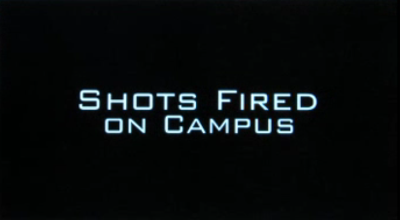Inclement Weather and Campus Closures
TTUHSC has established policies and procedures for handling class suspensions and
office closures during inclement weather, such as ice, snow, or flooding.
- Notification Methods:
- STAT!Alert system
- Local television and radio stations
- TTUHSC Announcements page
For more details, refer to Operating Policy 10.02, which outlines guidelines for temporary suspensions due to weather, electrical outages,
or other emergencies.
Severe Weather Preparedness
The Texas Tech community faces threats from severe weather, including thunderstorms,
hail, high winds, and tornadoes. TTUHSC uses a robust warning and alert system as
outlined in Operating Policy 76.15.
- What to Do During Severe Weather:
- Stay alert to warnings from official channels.
- Follow precautionary measures when sufficient warning is given.
- Be prepared for unpredictable conditions.
Winter Weather
These guidelines explain the dangers of winter weather and suggest life-saving actions
you can take. With this information, you can recognize winter weather threats, develop
an action plan and be ready when severe winter weather threatens.
Fire Alarm Activation During Severe Weather
Fire alarms may activate due to actual smoke, manual pull stations, or environmental
factors like dust, moisture, or severe weather.
Actions to Take During Fire Alarms
- Always evacuate if threatened by smoke or fire.
- If severe weather (e.g., tornadoes) occurs during an alarm:
- Move toward building exits or safe stairwells.
- Only exit the building if smoke and heat pose an immediate threat.
- In the Lubbock five-story HSC building, consider horizontal evacuation to another
pod, if safe.
During Tornadic Storms
- Taking cover is critical, even if a fire alarm is active.
- Practice situational awareness and prioritize safety based on the most immediate threat.
Additional Informaiton
For detailed guidance, contact:
- Calvin Shanks, Emergency Management Coordinator/Fire Marshal
- Jose Melchor, Emergency Management Coordinator
![Normal [Green]](/emergency-preparedness/_images/statusCode-green.gif) Normal Conditions
Normal Conditions![Alert [Ambar]](/emergency-preparedness/_images/statusCode-yellow.gif) Weather / Campus Closing
Weather / Campus Closing![Emergency [Red]](/emergency-preparedness/_images/statusCode-red.gif) Emergency
Emergency



